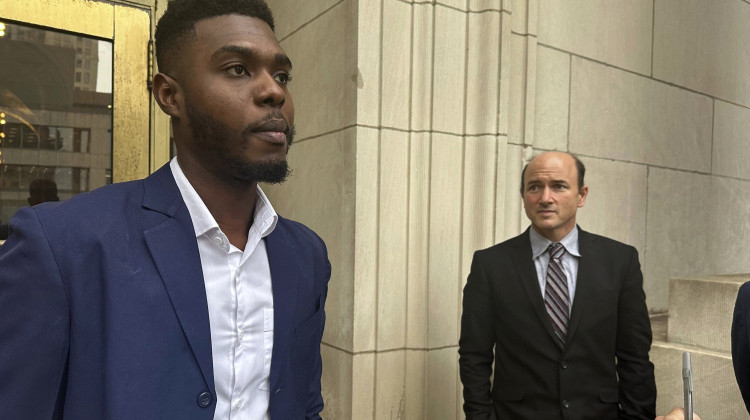Lawmakers set to work Wednesday fine-tuning a law passed last year that gives some convicted felons the ability to expunge their crimes from their records.
House Bill 1155 is the result of time the author – Rep. Jud McMillin, R-Brookville – spent last summer traveling the state and discussing the expungement law’s successes and problems with prosecutors, attorneys and other court officials.
The House Criminal Law and Sentencing Policy Study Committee passed the bill 10-2 on Wednesday after some amendments. It now moves to the full House for consideration.
Some of the changes are meant to help make the process easier for defendants.
McMillin told the committee that the bill fixed the “poison pill” issue with the original law – that a defendant couldn’t fix a petition once it was filed.
“That really scared a lot of people,” McMillin said. “And what we are including in now is an opportunity. We are basically allowing folks, that if in good faith if you screwed something up, you can file an amendment to your petition and change it.”
But he said the bill would only allow changes that dealt with the conviction in the original petition. It would not allow defendants to request expungement for additional convictions.
If passed, the bill would allow law enforcement officials, attorneys and prosecutors to see all expunged records if it is helpful to a current case.
It would also allow employers to see the records if an applicant or employee had expunged a serious crime. But some committee members expressed concern that employers would still not be able to see all of a person’s criminal history if it was expunged.
“It’s important to note that the only ones that are sealed from employers seeing them are misdemeanors and D felonies where no one gets hurt,” McMillin said. “If it’s anything above that, which most employers would be concerned with, employers still get to see them even if they are expunged. They will have the opportunity to see that someone has committed a crime. But, it prevents them from using that info to discriminate against that individual.”
Since the expungement process became law last summer, courts across the state have had a large number of filings. McMillin said his bill would change how the courts handle future cases.
Currently, the law requires that defendants file in the same court in which their convictions occurred. The bill would let them file the case in any court in the county of conviction.
“That will allow people to consolidate their cases in one location,” he said. “The court is now in the process of attempting to create a separate cause number that only deals with expungement. People are filing this stuff a lot to such a degree that the court feels like it would be justified having its own individual cause number. It will also allow the court to enact rules that protect confidentiality so people don’t have something accidentally still available for people to see.”
Andrew Fogle, the head of the expungement division at the Marion County prosecutor’s office testified that there is a need for an expungement policy and said he has had a lot of files processed this past year.
“We have processed the most expungement cases in the state,” Fogle said. “Since mid July, there have been around 500 filed, most being granted. The oldest one so far is from 1971.”
McMillin said that while there are people who disagree with the expungement policy, he hopes their fears have been calmed by the success of the past year.
Hannah Troyer is a reporter for TheStatehouseFile.com, a news website powered by Franklin college journalism students.
 DONATE
DONATE





 View More Programs
View More Programs

 Support WFYI. We can't do it without you.
Support WFYI. We can't do it without you.